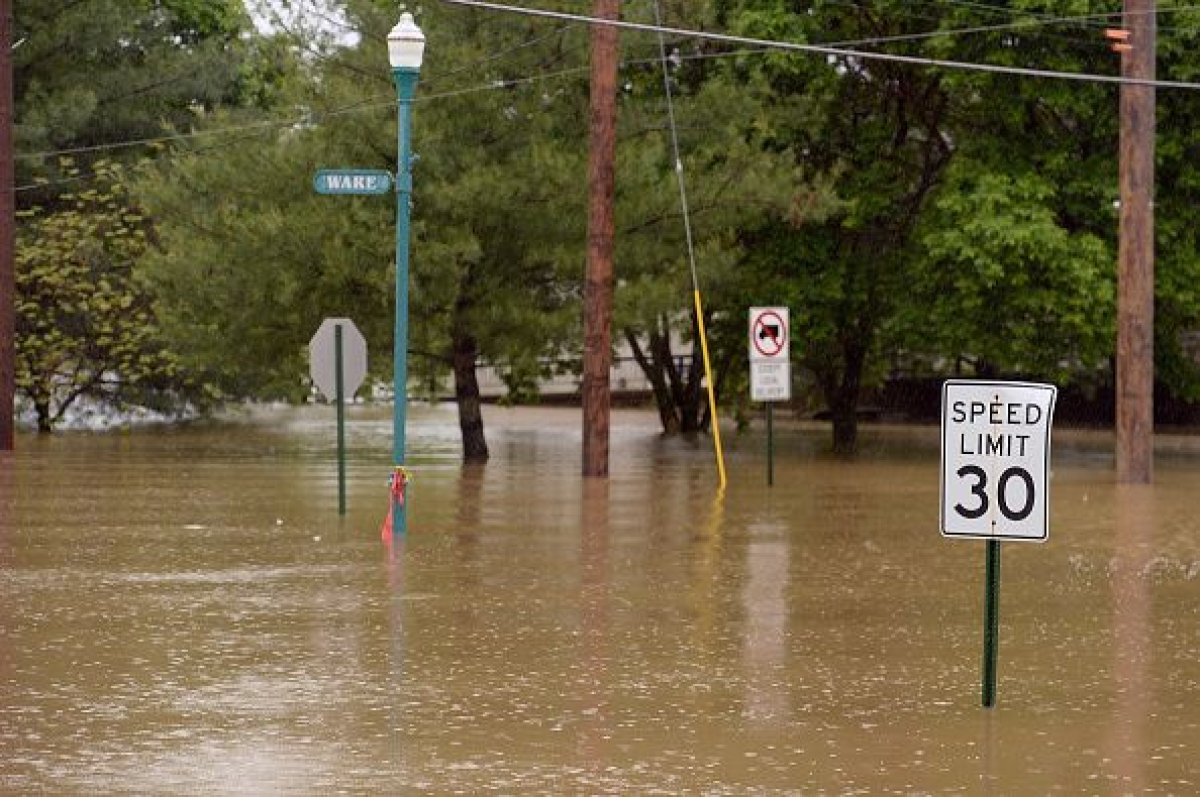Climate change could be the reason flooding in the Midwest has risen to historic levels, as states such as Nebraska, Iowa and Wisconsin have declared states of emergency. If ocean warming continues, these types of floods and storms will likely get worse.
Professor Michael Mann, director of the Penn State Earth System Science Center, told Newsweek that the kind of storm seen in the Midwest is providing a lot of moisture and energy from the Gulf of Mexico. As the oceans, which continue to grow warmer, and the cold air from the Arctic combine, Mann said that is how you get the "perfect storm."
"This latest storm system, like classic Nor'easters, derives its energy in part from the warm moist air off the ocean. In this case, we're talking about very warm Gulf of Mexico sea-surface temperatures, providing the storm with lots of moisture and lots of energy. As the oceans continue to warm, we expect larger contrasts between cold Arctic air masses and warm oceans that they meet, and temperature contrasts are part of what drives a typical midlatitude storm," Mann told Newsweek. "Add to that the extra energy from the Gulf moisture and you have all of the makings of—if you'll forgive the expression—a perfect storm, with large amounts of precipitation and the potential for extreme flooding from a combination of rainfall and rapid snowmelt."
Mann said these kinds of storms will continue to impact the U.S. and cause severe flooding.
"There is evidence that climate change is increasing these underlying factors, supporting the development of more intense 'bomb cyclones' and nor'easters, packing tropical storm–scale winds and dumping huge amounts of precipitation," Mann said. "So we expect even more extreme events of this sort if we continue to warm the planet by increasing the concentration of greenhouse gases in the atmosphere from fossil-fuel burning and other human activities."
"This really is the most devastating flooding we've probably ever had in our state's history, from the standpoint of how widespread it is," Nebraska Governor Pete Ricketts told CNN in a statement on Monday.
Three people died from the storm, including an 80-year-old woman from Columbus, Nebraska, who was trapped in her home during the flooding, the Omaha-World Herald reported. As of Monday, the National Weather Service said there was still significant flooding.
"Historic flooding continues across the Plains and Midwest this week with many rivers at 'major flood' stage. Many roads are closed due to flooding in the region and they're closed for good reason. 50 of all flood deaths are vehicle related. Turn around, don't drown!" the National Weather Service tweeted Monday.
Historic flooding continues across the Plains and Midwest this week with many rivers at "major flood" stage. Many roads are closed due to flooding in the region and they're closed for good reason. 50% of all flood deaths are vehicle related. Turn around, don't drown! pic.twitter.com/a557SvaKJj
— National Weather Service (@NWS) March 18, 2019

Uncommon Knowledge
Newsweek is committed to challenging conventional wisdom and finding connections in the search for common ground.
Newsweek is committed to challenging conventional wisdom and finding connections in the search for common ground.
About the writer
Maria Perez is a breaking news reporter for Newsweek. She has an M.A in Urban Reporting from the CUNY Graduate School ... Read more
To read how Newsweek uses AI as a newsroom tool, Click here.








